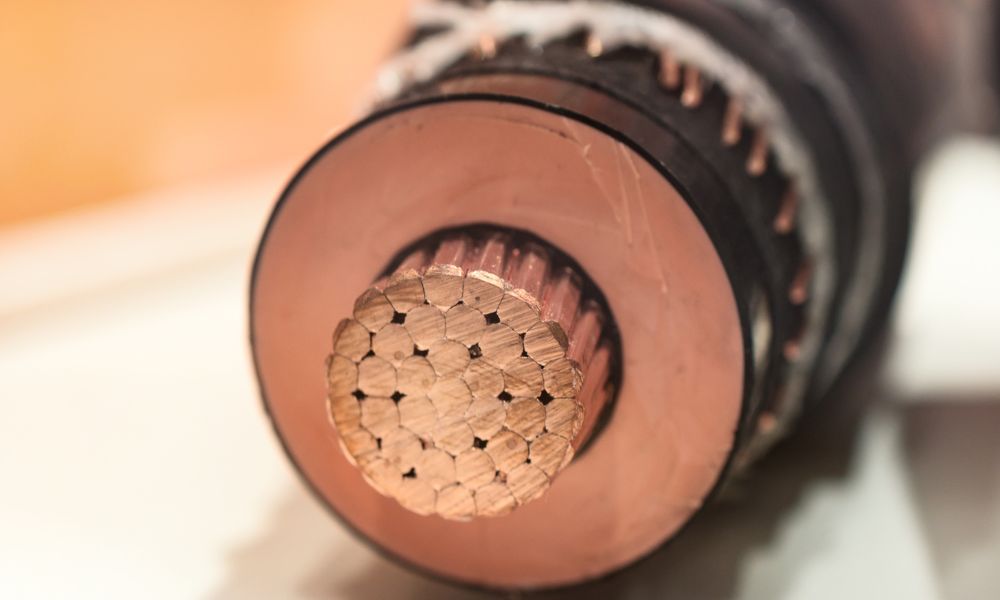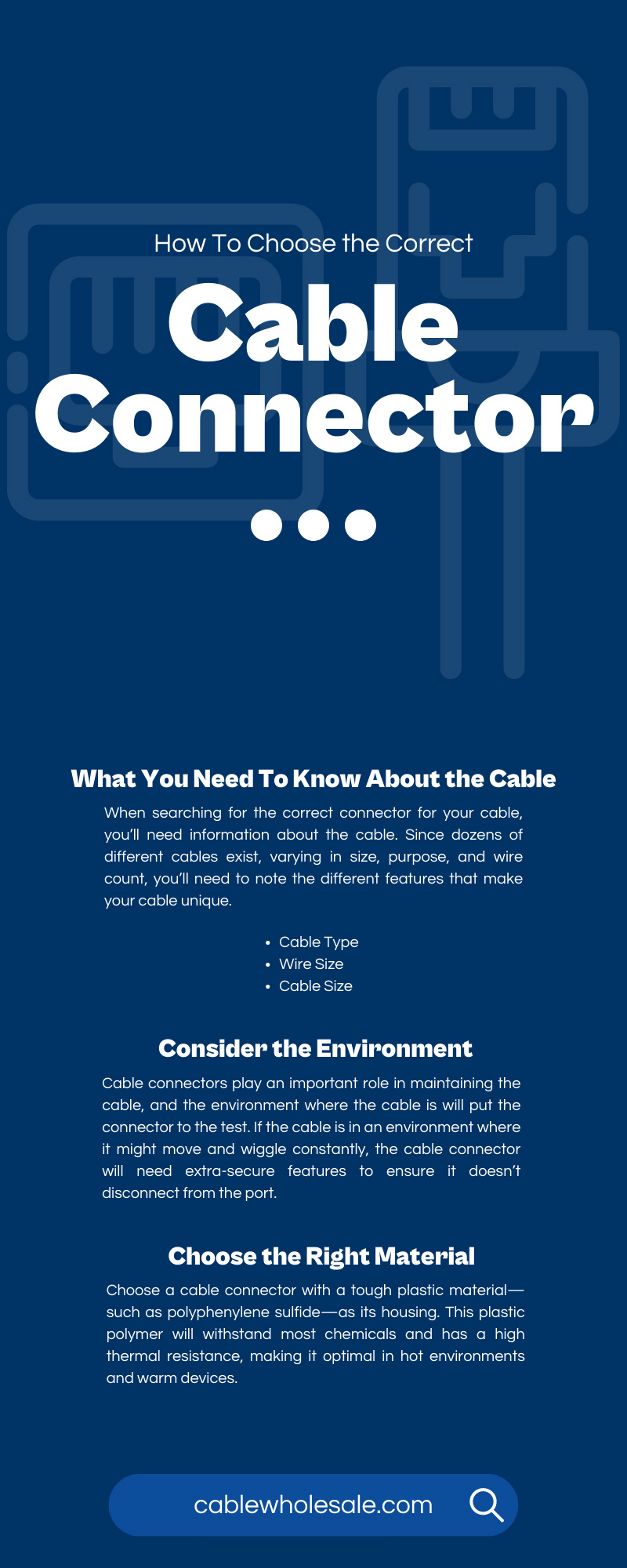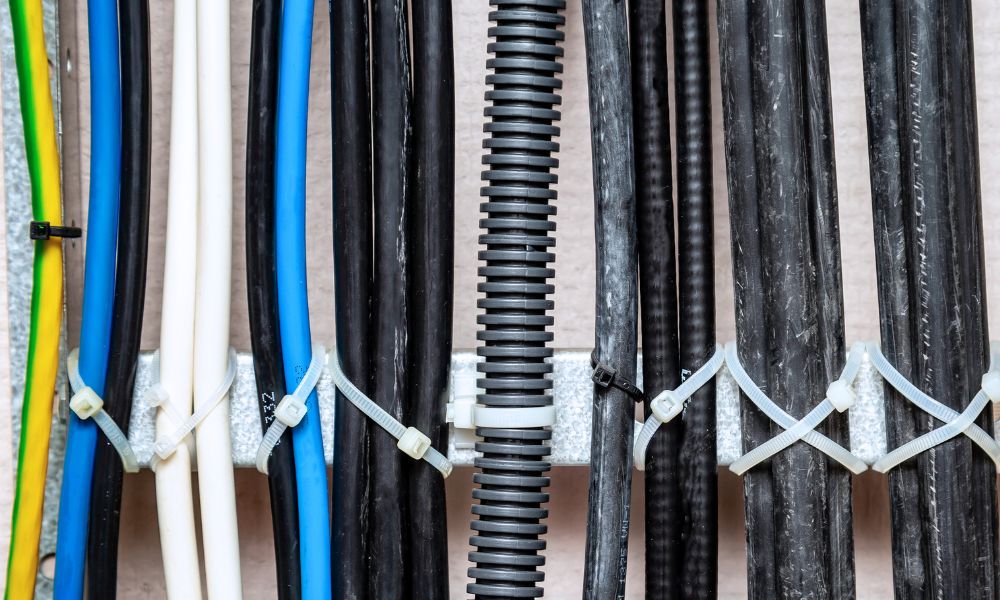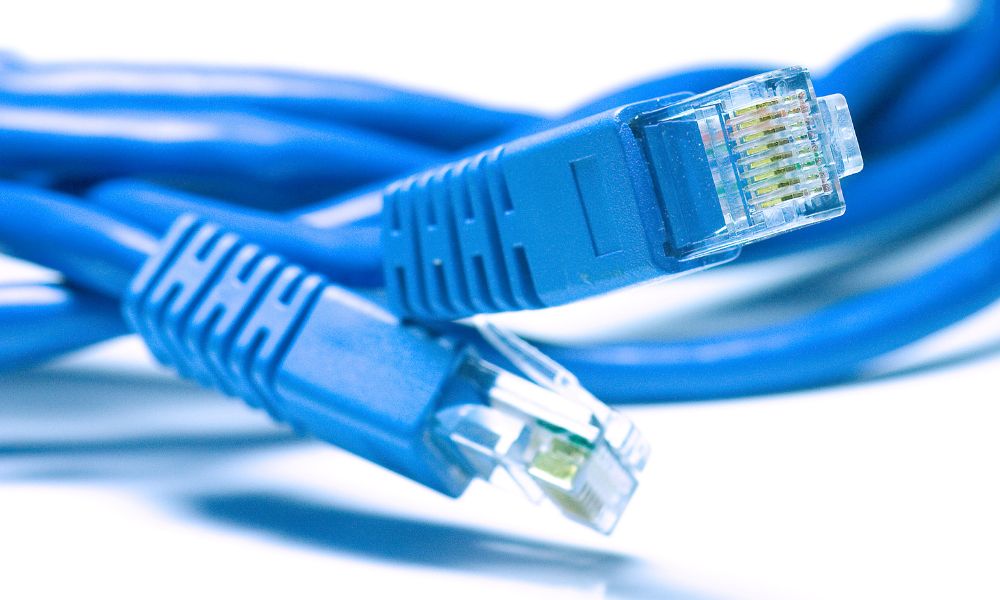
Correctly using cables requires the correct components, and the connector piece of the cable is an essential part. The cable connector determines how the cable will connect to a device. When you need to install or replace a cable connector, you need to choose the best option. Read on to learn what to look for when choosing the right cable connector.
What Is a Cable Connector?
A connector is what allows a cable to plug into a port. Connectors come in varying formats and shapes that have various benefits. For example, an RJ45 connector for an Ethernet cable ensures all wires in the cable connect to the termination point and transfer the data through the cable.
The Importance of Cable Connectors
Cables require a connection to a port to transfer data or electricity. This transfer occurs in various ways, from a single electric current to a single beam of light, in the case of fiber-optic cables. The correct cable connector is essential for the cable’s function; without it, the data can’t transfer properly.
Connectors have configurations to ensure the device or termination point processes the transferred data. Every part of the cable aims to form a fully functioning device that makes a connection, and the connectors are the beginning and end that establish and maintain that connection.
What You Need To Know About the Cable
When searching for the correct connector for your cable, you’ll need information about the cable. Since dozens of different cables exist, varying in size, purpose, and wire count, you’ll need to note the different features that make your cable unique. Once you understand these features, finding the correct cable connector will be easy.
Cable Type
Just like specific ports require specific connectors, specific cables require specific connectors. Learn the cable type to ensure you choose the connector that matches the cable’s needs.
Cable types such as Ethernet, HDMI, or VGA have noticeable differences in their connectors because they are different cables with different purposes. Each transfers data in a different way to produce an Internet, video, or audio signal to a device from a source. Understanding the cable type will help you determine its purpose and the connector it needs to carry out that purpose.
Wire Size
The wires that lead from one end of the cable to the other connect to a device via the cable connector. A cable connector must be compatible with the size and configuration of the wires. This ensures the connector works well with the cable and establishes a connection where the wires transfer data.
For example, an HDMI cable has 19 pins that carry audio and video data, each with a wire connecting to the cable’s ends. These wires are large in size, contributing to the HDMI cord’s thickness and necessitating a larger connector. So always learn the wire size to know which cable connector is necessary to establish a connection.
Cable Size
Along with the wire size, the overall size of the cable is an essential factor in choosing a connector. The wire and cable size may vary depending on the cable’s needs to facilitate operations. Choose a cable connector that is the correct size and doesn’t squeeze the cable into the endpoint.
If the terminated cable end fits too tightly into the connector, the wires and cable jacket may sustain damage, leading to poor performance and potential malfunction. So keep the whole cable in mind when selecting a connector, as failing to do so could harm the cable.
Consider the Environment
Cable connectors play an important role in maintaining the cable, and the environment where the cable is will put the connector to the test. If the cable is in an environment where it might move and wiggle constantly, the cable connector will need extra-secure features to ensure it doesn’t disconnect from the port. For instance, you might need a connector with a cover to prevent accidental disconnections in RJ45 connectors.
Overall, considering the cable’s environment before choosing a cable connector will ensure the best function in a network or system. You’ll reduce the risk of system failure and network disconnections.
Choose the Right Material
Most cable connectors consist of a mixture of plastic and metal, but there are variations to consider for better connections. The connector needs a material that will maintain function in high heat and won’t degrade over long periods of exposure to environmental hazards.
Therefore, choose a cable connector with a tough plastic material—such as polyphenylene sulfide—as its housing. This plastic polymer will withstand most chemicals and has a high thermal resistance, making it optimal in hot environments and warm devices.
The metal in the connectors forms the parts that connect to the device, and copper is a common material since most wires are copper. Copper has good conductivity and heat resistance, but other alternatives are brass, bronze, and an alloy combining copper and another metal such as gold or nickel.
Consider How the Connector Works With the Cable Features
All cables have certain specifications concerning their current rating and operating voltage. The current rating is the maximum amount of electrical current flowing through a terminal. The operating voltage is the amount of voltage that the connector will withstand.
If your cable provides a strong current and large voltage, you’ll need a connector that supports these features, allowing the current to flow easily and withstand high volts. Choose durable and long-lasting connectors that will serve your connected devices well.
Where To Find Cable Connectors
Cable connectors are valuable parts of the cable; without them, there wouldn’t be an established connection between the two points. Now you know how to choose the right cable connector to ensure your cable’s optimal functionality when connected to a source.
You’ll find most cable connectors in cable shops online or in person. Cable suppliers have a plethora of options to choose from for various cable types and sizes. These stores are great places to ask questions about the best connector for your cable, as techs and experts are often available there to help you find the right choice.






